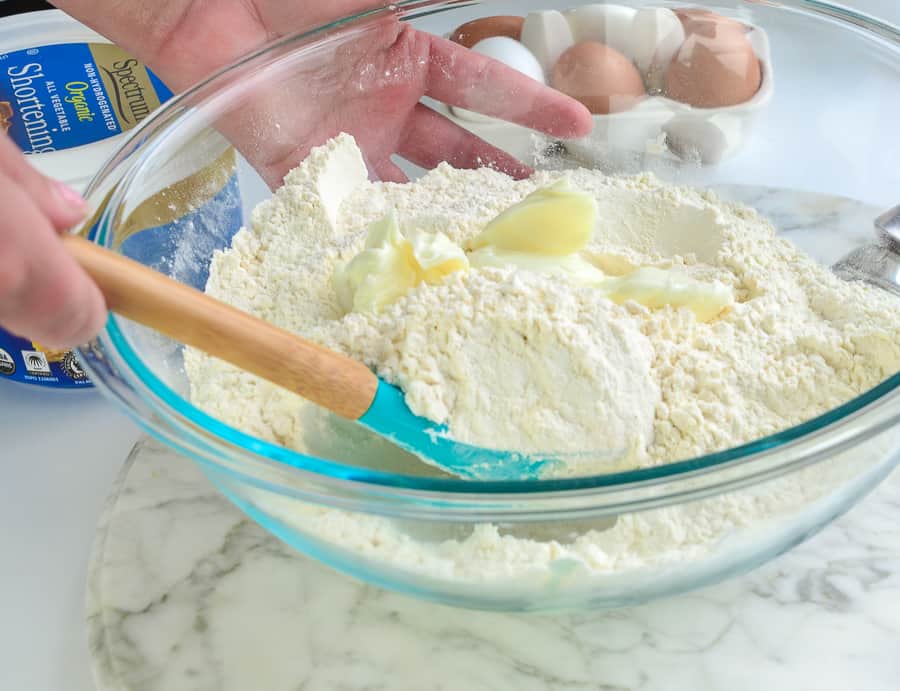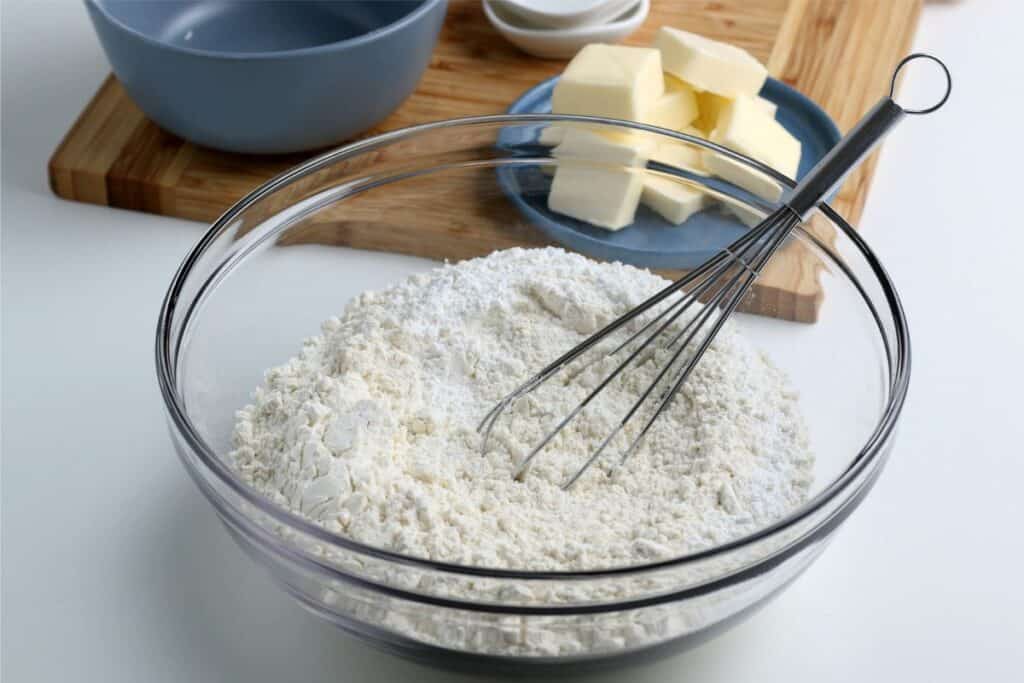Have you ever wondered if you can use Bisquick instead of flour when baking? It’s a common question that many people ask, and the answer is yes—you can use Bisquick in place of flour in some recipes. However, there are some things to consider before making the switch. Let’s take a look at what you need to know about using this popular baking mix as a substitute for all-purpose flour.

Table of Contents
What Is Bisquick?
Bisquick is a pre-made baking mix made up of several different ingredients, including all-purpose flour, sugar, baking powder, shortening or lard, and salt. The combination of these ingredients makes it much quicker to prepare baked goods like pancakes and waffles than it would be if you had to measure out each ingredient separately.
Can You Use Bisquick Instead of Flour?
Yes, you can use Bisquick instead of all-purpose flour for certain recipes such as pancakes and waffles.
However, it’s important to note that not all recipes will work with Bisquick. For example, breads and cakes typically require more specific measurements of ingredients so they won’t turn out properly if substitutions are made. Additionally, using too much or too little Bisquick could result in an undesirable texture or flavor in your finished product.
When Should You Use Bisquick Instead Of Flour?
Bisquick is best used when making quick breads like pancakes and waffles since it already contains most of the necessary ingredients and requires less measuring on your part. Additionally, this pre-made mix is also helpful when you want to quickly whip up muffins or biscuits without having to measure out multiple ingredients separately.
Just keep in mind that you should always follow the recipe closely when using Bisquick as a substitute for all-purpose flour since too much or too little of this mix can lead to disappointing results.
Special Tip
Bisquick can also be used to make pancakes, waffles, dumplings, and more.
To use Bisquick instead of flour in a recipe, simply replace the amount of flour called for with an equal amount of Bisquick. For example, if the recipe calls for one cup of flour, use one cup of Bisquick instead. When baking with Bisquick it is important to note that the baking times may be slightly shorter than the original recipe since Bisquick is pre-mixed.
When it comes to substituting ingredients in a recipe, always use ingredients that are of the same quality as those in the original recipe. For example, if a recipe calls for whole wheat flour, use whole wheat Bisquick instead of regular Bisquick. This will help ensure that the final product tastes like the original. With Bisquick, baking is a breeze!
FAQs
Can pancake mix be used as flour?
Yes, pancake mix can be used as flour in baking recipes.
Generally, one cup of all-purpose flour is equal to one cup of pancake mix. While it may not work perfectly in all recipes, you may find that it works well for many baked goods such as pancakes, muffins, cakes, and breads.
However, it is important to keep in mind that using pancake mix as a flour substitute may give your baked goods a slight flavor of pancakes. Additionally, the texture and consistency may not be quite the same as if all-purpose flour were used instead.
Therefore, when baking with pancake mix you should make sure to account for these differences when measuring out ingredients, and be prepared to adjust the recipe as needed. Ultimately, if you find yourself in a pinch and need a flour substitute, pancake mix may be an ideal choice.
Can you use self-rising flour to make gravy?
Yes, you can use self-rising flour to make gravy.
Self-rising flour is a combination of all-purpose flour, baking powder, and salt. It is used in recipes that don’t require yeast or other leavening agents such as cakes and biscuits.
To make gravy with self-rising flour, mix the desired amount of self-rising flour with an equal amount of melted butter.
Slowly add the desired amount of liquid such as chicken or beef broth and whisk until smooth.
Simmer over medium heat, stirring occasionally, until the gravy reaches your desired consistency.
Adding seasonings to taste is optional. Keep in mind that self-rising flour tends to thicken quickly so you may need to adjust the recipe accordingly.
With some experimentation, you can make delicious gravy with self-rising flour.

Conclusion
All in all, while it is possible to use Bisquick instead of flour for certain recipes like pancakes and waffles, keep in mind that not every recipe will work with this baking mix. Additionally, make sure that you follow the recipe closely if you do decide to make the switch—too much or too little Bisquick could result in an undesirable texture or flavor for your final product! With these tips in mind, feel free to experiment with substituting Bisquick for flour next time you’re baking!
References:
https://www.degruyter.com/document/doi/10.2202/1542-0485.1026/html








